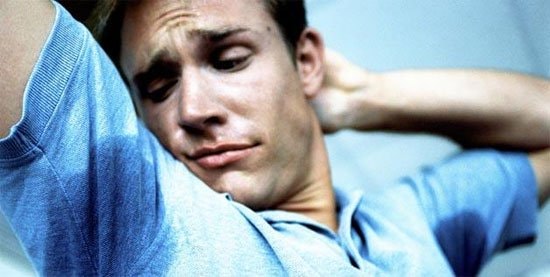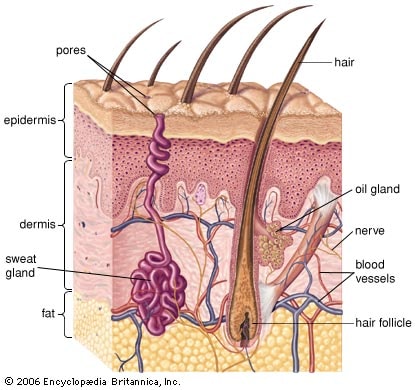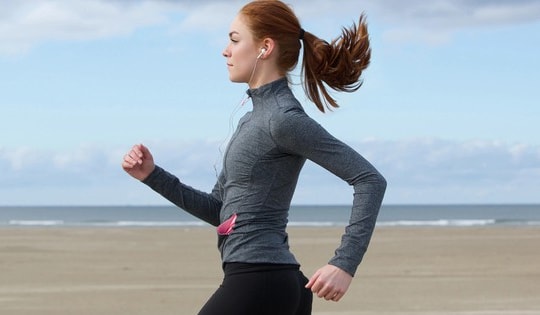Facts and Myths About Sweat
When exercising, when taking a sauna or in the hot summer… our bodies sweat a lot. So is sweating harmful to the body, does it help lose weight, does diet affect the smell of sweat?
Does sweating like you did in the gym help you lose weight?
The phenomenon of “evaporation” of 0.5 or 1.0 liters of water in the form of sweat can be easily achieved even with normal intensity training efforts (the bodies of professional athletes can lose 12 liters/day!).
Such a loss of water does not mean that the body has eliminated a certain amount of excess fat and the water deficit is immediately compensated, as soon as the thirst is satisfied.
It is the physical exertion that results in the calorie-burning effect that is important for health, not the sweating itself – lying around in a sauna, even if you sweat, does not have a fat-burning effect.
|
Sweat gland structure. |
The truth is, the more you sweat during exercise, the more health benefits you get. Sweating serves the purpose of cooling your body. Exercising in a stuffy, hot room will definitely make you sweat, but it won’t help you perform any faster.
Does sweating allow toxins to be eliminated from the body?
Sweating has a cleansing effect on the body is the next misconception. The truth is that the body cleans itself - thanks to the work of the kidneys and liver. When people sweat, it does not mean that the body is cleansing itself, simply, it is a phenomenon of the body being overheated.
How many liters of sweat does our body produce?
It depends on the specific context. If it is hot or the subject is doing heavy work – the body sweats more; if resting in a cool environment – sweats less. A subject not used to the hot climate appearing in the African desert will produce nearly 1 liter of sweat within 60 minutes.
Diet affects the amount of sweat produced
If we eat something that activates the whole body’s muscles – for example, hot peppers – the capillaries dilate, the skin temperature rises, and the thermoreceptors signal the central nervous system that it’s time to turn on the cooling switch. We also sweat more after drinking strong alcohol, because the alcohol in the wine speeds up the heart’s function and has a dilating effect on the capillaries. We also sweat more after drinking coffee, because the caffeine in the coffee stimulates the central nervous system and activates the sweat glands.
The menu can affect the smell of sweat. We can sense, the new subject enjoys dishes with a lot of garlic or onions. Research conducted by scientists in the Czech Republic shows that we can even "sniff" to recognize the difference between vegetarians and their meat- and fish-loving counterparts.
Why do some people have smelly sweat?
 |
Sweat itself is water mixed with a small amount of salt and a little fat… it has no smell. Only the metabolic products of bacteria that live on sweat give off the smell. Dr. Chris Callewaert (University of Gandawie, Belgium) has researched which types of fibers bacteria live most comfortably on.
As a result, polyester fabrics took the top spot, the material most favored by bacteria of the Micrococcus family, which are responsible for the characteristic odor of athletes' training clothes. Generally, odor-causing bacteria avoid natural cotton fabrics, while odorless strains of bacteria are the main inhabitants of natural fibers.
Some people only have smelly feet. This phenomenon proves the presence of an army of Micrococcus sedentarius bacteria. To avoid unpleasant odors, dry your body after bathing or washing because wet skin creates favorable conditions for bacteria and fungi that live on sweat to grow and develop.







